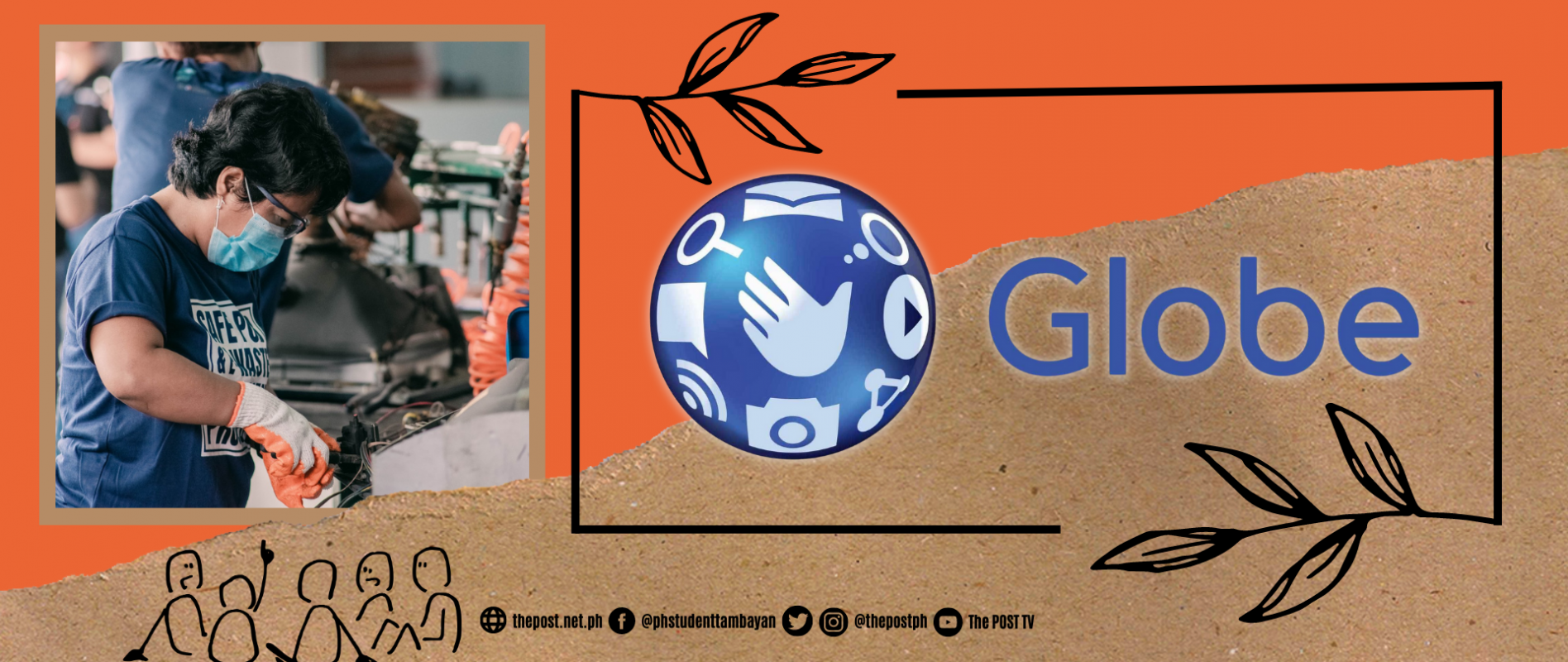GLOBE-SUPPORTED TSD FACILITY IN MALABON CITY EMPOWERS WOMEN WORKERS WITH SAFE AND SUSTAINABLE E-WASTE RECYCLING OPPORTUNITIES
Leading digital solutions platform Globe has partnered with key stakeholders to raise awareness about the importance of e-waste management in the country and the critical role that women play in this area.
The project, entitled “Implementation of Polychlorinated Biphenyls (PCB) Management Programs for Electric Cooperatives and Safe E-waste Management,” is a joint undertaking by the Department of Environment and Natural Resources – Environmental Management Bureau (DENR-EMB) and the United Nations Industrial Development Organization (UNIDO), with funding from the Global Environment Facility (GEF). The Integrated Recycling Industries, Inc. (IRI) and EcoWaste Coalition were engaged by UNIDO to assist in the implementation of project activities in the e-waste project sites.
A Treatment, Storage and Disposal (TSD) Facility in Barangay Dampalit, Malabon City was established through the partnership. Women waste recyclers working in the TSD facility were trained on the dismantling of e-waste and are now equipped with safe and proper e-waste recycling practices. The project created job opportunities and has empowered the women mangangalakal.
As part of the project, Globe provided funding support to the facility by donating a vehicle that will be used for collecting and transporting e-waste generated from e-waste collection events initiated by the project. Globe also provided e-waste collection bins distributed to the different office buildings at the DENR- EMB, as well as communications materials.
In a recent dialogue, the women members of the Samahan ng Mangangalakal expressed their appreciation for the project, especially the TSD Facility, and its positive contributions to their lives. They reported gaining more confidence along with the formal setup, better health and safety, and more stable income.
“Being part of this project gave me the confidence to inspire others. Our local environment is safe from hazardous substances and the e-wastes we sell are managed properly in this facility. I can see now we are a big part of our community. We are not “just” women,” said Joanna Amican, an e-waste dismantler.
“In the past, my everyday worry was where to get the next meal. Now, when I am already a formal e-waste dismantler, I am sure I can put food on the table three times a day,” added Charina David, another beneficiary.
Informal e-waste recycling has been a source of livelihood for many residents in Brgy. Dampalit. The absence of a formal facility posed health and environmental hazards, as recycling was done in the home, where families, including children, were exposed to toxic materials like polybrominated diphenyl ether (PBDE), bromine, and other heavy metals. PBDE was normally used as flame retardants in old television sets and computers.
As of January 2023, the TSD facility has collected 50,000 cathode ray tubes from television sets with PBDE-contaminated plastic casings, or approximately 1.1 tons of PBDE. It has also collected 200 tons of recyclable materials from e-waste, attaining a recycling rate of 20%.
In Metro Manila, most e-waste is handled by the informal sector, including approximately 2,300 junk shops, as well as women and children. The establishment of the TSD facility in Malabon City provides a model for safe and proper e-waste recycling that could be replicated in other communities.
The success of the TSD project shows that with proper support and resources, communities can adopt sustainable practices that benefit both the environment and society.
“We take pride in our involvement in this project that not only empowers women but also helps contribute to proper e-waste management. Our commitment to building a sustainable future through collective action drives us to collaborate with our partners in promoting environmental stewardship and community empowerment,” said Apple Evangelista, Head of Sustainability and Social Responsibility at Globe.
E-waste is one of the fastest-growing waste streams in the Philippines, with the country generating 32,664.41 metric tons per year, according to the Global E-Waste Monitor in 2019. E-waste management in the Philippines faces challenges such as the absence of formal recycling facilities and a lack of formal inventory of e-waste generation.
Globe is committed to continuously support initiatives that promote sustainability and inclusivity. The TSD project is just one example of its efforts to create a positive impact in the Philippines.
To learn more about Globe, visit https://www.globe.com.ph/








